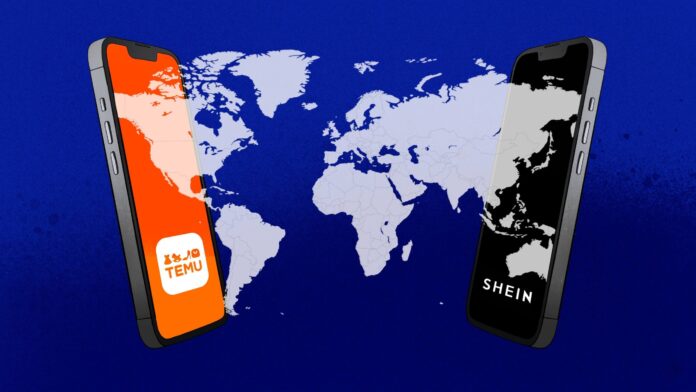The Chinese online retail giant, Temu, has recently come under scrutiny regarding its alleged questionable activities in South Africa. Meanwhile, Shein, another prominent online retailer, has denied accusations of dodging customs and other taxes.
The South African government, led by Trade and Industry Minister Ebrahim Patel, has expressed its intention to confront online retail platforms that exploit tariff loopholes, thereby undermining locally-produced goods.
Patel specifically highlighted the dominance of Temu and Shein as one of the major challenges faced by the local textile industry.
[ B4SA Is Confident South Africa Will Soon Be Removed From Greylist ]
Industry experts have raised concerns about the practices of Temu and Shein, with allegations of tax and customs loopholes being exploited to import products into South Africa at lower costs.
This practice allows them to undercut local retailers, potentially resulting in job losses and reduced tax revenue. Michael Lawrence, the Executive Director of the National Clothing Retail Federation, has flagged these suspicious practices to the South African Revenue Service (SARS).
Frederik Zietsman, the CEO of Takealot Group, has also made similar allegations without directly naming Temu and Shein.
Zietsman stated that some “new players” in the market are not adhering to tax regulations, while sellers on Takealot are required to pay import duties. He emphasized the need to address this issue, as it has a negative impact on the South African economy.
While Temu did not respond to requests for comment, Shein has denied the accusations and stated that it complies with all relevant tax regulations in South Africa.
Shein clarified that it pays customs duty and value-added tax (VAT) at the appropriate rates on every clothing import.
The company emphasized that its ability to offer affordable prices is a result of its technology-based on-demand business model and flexible supply chain, rather than skirting import taxes.
One possible explanation for the issue raised by Lawrence is that Temu and Shein’s delivery partners, such as Buffalo International Logistics, may have been incorrectly reporting duties and taxes to SARS.
Lawrence conducted tests that revealed taxes applied to packages could be as low as 10% of the item’s value, significantly lower than the 45% tax and VAT on imported clothing aimed at protecting local manufacturers.
However, Shein stated that this does not happen with its parcels and that it works with local agents to ensure proper declaration and payment of customs duties.
It is important to note that Temu operates as a marketplace, similar to Takealot and Amazon, allowing third-party sellers on its platform.
On the other hand, Shein produces and sells its own clothing. Both companies have stated their commitment to complying with local laws and regulations, including those related to customs and tax compliance.
Despite the allegations, Temu maintains that it collaborates with a reputable logistics company experienced in e-commerce packaging. This logistics company acts as the customers’ agent with local customs and tax authorities to clear packages and process and remit applicable taxes.
Catch up with the latest news from The Times Post on WhatsApp by following our channel. Click here to join.
Kindly follow @thetimespost on Instagram. On X (Twitter), follow @thetimespost2.















